Table of Contents
More than ever before it has become clear that E-motions are at the front and center of life and living today, of business relations, decision-making, negotiation, bargaining, you name it.
Emotional intelligence skills are the most important skills that are needed to create a business environment that thrives, not just survives.
There’s a great deal of ambiguity in the corporate world as to what constitutes emotional intelligence. And what value it actually has to the so-called, bottom line of profit & productivity.
This term which was coined by Daniel Goleman over a decade ago has sprung everywhere and for a while, it was the buzzword in the business world.
It has since been mostly neglected and forgotten. In my professional opinion, it is not easy for most CEOs and leadership, in general, to take it on board.
You see, it defies their perception of what they think leadership is about. They are completely wrong, but perception trumps facts even if it’s built on falsehood, as we see these days, everywhere.
Emotional intelligence, or EQ, as it is often referred to, addresses the aspect of humanity in general and soft skills in particular. Thus it’s not regarded as an essential must-have skill for the workplace.
Overwhelming amounts of research and studies demonstrate beyond a shadow of a doubt that Emotional Intelligence skills for the workplace are critical to corporate success.
The 90/10 Percentage
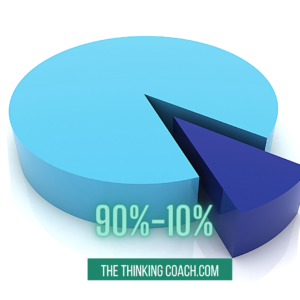
In fact, it is so blatant that many studies have actually regarded soft skills to have a 90% positive effect on productivity while domain skills only have a 10% effect.
Yet, 90% of corporate training dollars go towards hard skills or domain skills training while only 10% to emotional intelligence skills training and the like.
As Shakespeare is quoted, “to be or not to be, that is the question“.
He never said to do or not to do…” To be” is the enabler of “to do”. How to think about it is, that Being is the soft skill that enables quality and long-lasting Doing of hard skills.
How is that possible? Well, again, perception vs. facts. What wins? Perception every time.
Emotional Intelligence Skills – What is it?

Great question! Emotions have a critical role in everything to do with human beings. Decisions rise or fall on the quality of emotions present.
Nations rise & fall, governments rise & fall, families rise & fall and…companies rise & fall, wars break out, peace treaties are signed, and much of it is to do with the emotional factor.
E-motion, if you divide the word you can understand its meaning.
It is a motion of E and E is always to do with energy. Emotions, therefore, are earthmovers of energy, up or down.
As a specialist in negotiation, I can vouch for the fact that they are the main deciders of the success or failure of negotiation.
So it’s best to have an intelligent e-motions rather than stupid ones.
- What are intelligent emotions? Positive
- What are stupid emotions? Negative
It’s that simple. Emotional Intelligence skills are an important factor in establishing the health of an organization, which I call the top line. The health of an organization is the “Black Swan” factor that either pulls or pushes the bottom line of profitability up or down. It can’t be measured on its immediate impact like you would measure a marketing campaign.
However, over time its presence can tell an amazing story of success. Emotional Intelligence has different parameters but its anchor is Empathy. Empathy holds within itself many other essential humane aspects.
Empathy is a lot to do with the willingness to cross over and feel what other people feel. Show them that you understand them and even sympathize with them. This by itself gives recognition and value to people that they so crave for, and often solves their problems.
Emotional intelligence has a major positive influence on building cohesive teams, taking ownership, and minimizing employee turnover.
The Corporate Reality
The corporate world is way below par where EQ is concerned. It is dumbfounding to see how infested and poisoned most working environments are. The real question is, how is it possible that the leadership doesn’t see the connection between that and productivity?
This is particularly meaningful where Emotional Intelligence for the workplace is concerned. This is, given the obvious fact that most workplace environments are prone to negativity.
Interpersonal conflicts, hidden and obvious, backbiting, complaints, politics, favoritism, and the like unfortunately characterize many workplaces
The lack of Emotional Intelligence Skills in the corporate environment is as obvious as can be. And I am only referring here to the survival level.Creating a thriving environment requires ongoing emotional intelligence training of the leadership and the workforce in a consistent and progressive manner.
Thriving with Emotional Intelligence Skills
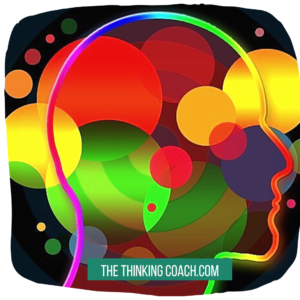
It is obvious to anyone who diagnoses the health of the corporate world that the attitude towards Emotional intelligence skills and their real place in the business world requires an urgent paradigm shift and consequent change.
Give it space, look at it, understand it, study it and you will gasp at its potential to uplift an organization and put it at the forefront of its competitors.
Millenials are fast becoming the majority of the workforce today. This is a generation that is much more prone to togetherness and empathy. Emotional intelligence is much more present, more than in previous generations.
What this is saying is that emotional intelligence skills are essential in these times much more than before.
However, if people think that they’ll keep doing the same things and get different results they are mistaken. To make that paradigm shift it is important for leadership to admit to the importance of emotional intelligence as a business strategy. They need to accept and understand that improves the health of the organization, which is the basis for its long-term profitability.
Thriving with emotional intelligence, therefore, needs a change of perception and willingness to invest long-term and make it part of the company’s culture.
Practical Scenarios of Emotional Intelligence For The Workplace
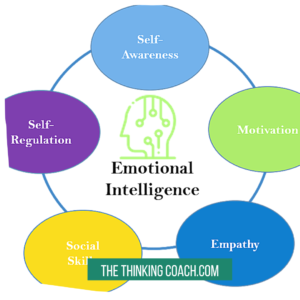
Let’s look at a few examples from everyday scenarios from what we call the “professional environment”…
There are many.
They all rest on the smallest, unobtrusive “life’s inches”, such as a smile at the right moment, an encouraging word, a pat on the shoulder, a hug, or even a stern look (not punitive) to put a person in balance.
Those are all simple things, but why are they so rare in the corporate world? One asks, especially when they have such a positive impact on productivity.
What is it that prevents the human touch? what is so “unprofessional” about kindness and forbearance?
Well…it requires training and the naive and ambitious leadership wants fast results.
Emotional intelligence is a long-term “cooking” process that yields long-term results…
So…they don’t want to invest in it. They don’t believe in it. Because they were never trained to have it, and, frankly, many are threatened by it….That’s the short answer.
Scenarios to Consider

Here are everyday scenarios that we are all aware of, that I am sure you see all the time…
• A coworker comes to the office in the morning and they are miserable…
• The manager demands from a worker to perform better in harsh and punitive tones…
• A worker talks negatively behind the back of another coworker…
• Two people are gossiping about another worker
• When a person is not being appreciated for their efforts
• A person is unfairly accused and blamed for other’s errors
Although these matters are redundant and extremely common today, what is not understood is that how they are handled can ultimately make a huge difference in the bottom line of the profit & loss column of a corporation.
The absence of Emotional Intelligence skills enables negativity to spread and take over, like wildfire in a field of thorns.
Negativity breeds mental and emotional diseases in the workplace that stifle new opportunities and curtail growth. This translates to unrealized financial opportunities & profits, which hide just down the road (The all famous Bottom Line)
So What Is Emotional Intelligence Training About

Emotional Intelligence training is about educating the emotions in the context of organizational health.
It’s about establishing a connection between improved organizational health and improved organizational smarts.
It provides participants with emotional intelligence skills that are vital for this time.
This is especially true in communication, conflict prevention, and, critically, creating a prolific work environment.
We shall give it a new term “Human Technology”…the ability to press the right buttons on the most sophisticated computer ever made…The human.
The human, with its sensitive emotions, the software. and mental capacity, hardware, can be programmed to produce positivity, inspiration, belief, empathy, and trust.
All of which are essentials for organizational health & wealth. It always rests on small things, just as the late Vince Lombardi said about football…” it’s a game of inches”*
I would say to you that, humans are so finely tuned that the human “game” rests on Nano millimeters because it is the small things that always, always tell the big story.
The Objective Of The thinking Coach Training?

To provide professionals with a simple and effective toolkit of interpersonal skills to manage the Higher E-motions rather than be controlled by the Lower Emotions.
Thus learn to build unity and trust with their co-workers, reports, and leadership.
This is a unique hands-on program.
It is easy to apply with performance information tools and performance tools.
This will make a real difference in the ability of the professional to perform under pressure.
It is part of The Thinking Coach Leadership training courses and Employee Training Development which offer a kaleidoscope of first-class seminars.
Please feel free to call me for exceptional leadership training courses that make a difference!
*“Life’s a game of inches, and so’s football. In either game, life or
football, the margin for error is so small: I mean, a half a step too late, or
too early, and you don’t quite make it; one step too slow or too fast, you
don’t quite catch it…”
Vince Lombardi
Eli Harari
The Life Coach for Professionals™
Image Source: Needpix, Pexels, (© photographer Tomasz Trojanowski/ Fotolia)

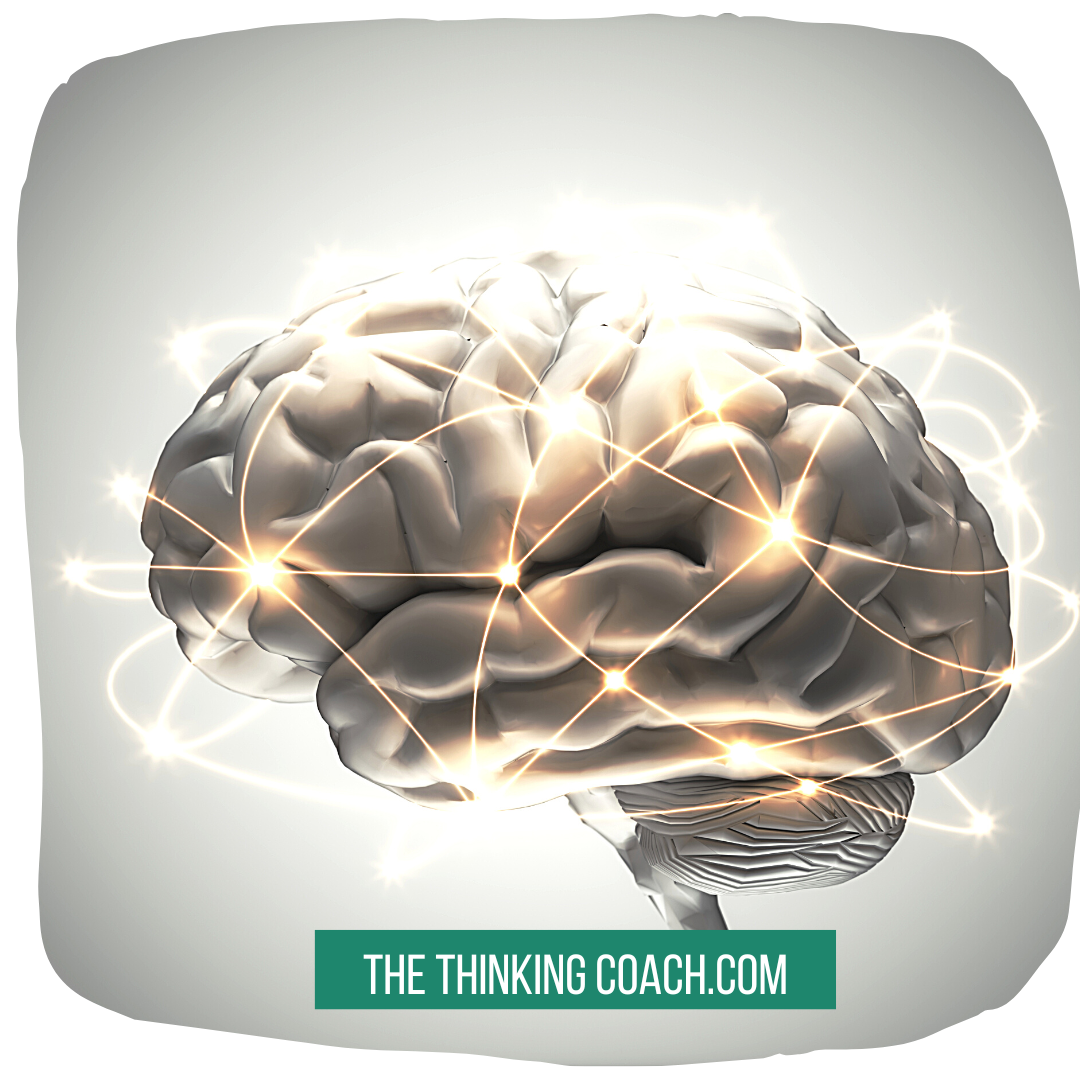

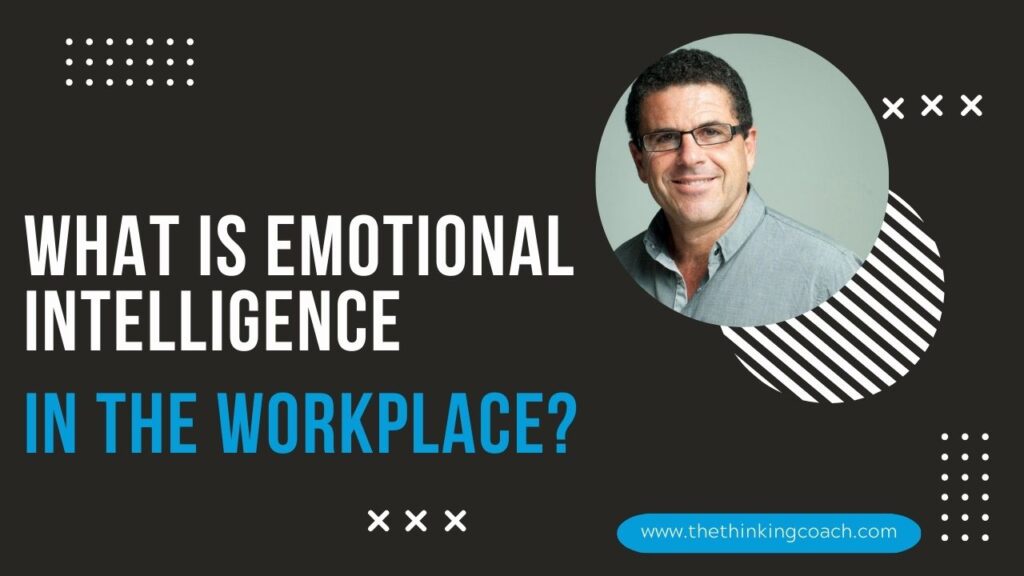
oh wow, I have never heard the effects and negative effects in particular of a lack of EQ training play out in the workplace.
I’m thinking, how do I get my manager for go on one of these courses? Yes, she is a great technical specialist but when it comes to EQ man is she clueless and its hard to tell someone how they are negatively impacting the team with their lack of a smile or lack of empathy when they don’t get it.
What would be your advice at how you communicate to this person that perhaps they need more EQ?
Hi SJ, glad you found it useful. How to tell her? pull her nose and scream into her ear…just joking…she needs my training, so maybe the clever thing to do is work your contacts to have me invited to do an emotional intelligence seminar for the whole group, where she attends, and then, believe me, i’ll get to her, You think you can pull it off? Typically my seminars ‘stir the pot’
Let me know your thoughts
Cheers
Eli
I completely agree that emotion training is a very important and usually lacking skill in corporate American and around the world. So much pain and job loss could be prevented if my corporate leaders and CEO’s would take this are as the necessity that it is!
Looking back in my work history, I can find many instances, both of mine and others, that emotional skills were very lacking in the people at the top, and unless there is a shift in the thinking at the top, it will not get better. Your type of training should be mandatory, not optional!
Please get the word out there now, because the emotional skills of the up and coming generation are sadly lacking. In a world where everyone has a “me first” attitude, there is going to be even more workplace strife and misunderstandings. If the leaders don’t know how to handle these situations, it will be a mess.
Makes me glad I am retired. But even sixteen years ago, before I retired, I purposely chose a career that was independent of my bosses just for that reason.
Angi
Angi,
Your words are very accurate and indeed I am trying to get across to decision makers to make this mandatory. However…in most cases the blind is leading the blind.
Do you have contacts that you would like me to pursue?
Cheers and thanks for the kind words
Eli
In the UK there has been a culture of promoting people who have just “been in situ” for so many years. Their skills as managers or leaders has not been taken into consideration.
I feel like there is a tide of change and I am hoping that the world is changing and valuing people more.
Large organisations often express problems retaining staff. They tend to blame the quality of the staff rather than the quality of leadership and how they deal with conflict situations.
Eli, I assume you are in the U.S.A?
Is there a similar form of coaching in the UK?
Hello,
thanks for your comment. indeed the truth is that leaders need to measure up and that’s what my practice is about and yes be arrangedI am based in the US but often in Europe and the UK so if you need a training it can be arranged as I come by invitation.
cheers,
Eli
I really have an outgoing personality and people that are constantly complain really kind of bring me down.
Our minds can really change the dynamics of the workplace. I have experienced this first hand. I remember back when I had a full-time 9-5 job and I had this woman that constantly put me down behind my back. She would make up lies about me, try to get me in trouble with managers, etc.
It ended up catching up to her and she actually got fired for gossiping. I remember celebrating that day. Even though I really probably shouldn’t have.
I do have a question for you, though. What tactics do you use when someone in the workplace is truly evil, always complains, and tries to bring everyone down?
Hi
You ask a good question but the answer requires full session of training, not a quick answer
Eli
Hi to all, for the reason that I am truly eager of reading this web site’s post to
be updated on a regular basis. It consists of pleasant
stuff.
Aw, this was an incredibly nice post. Spending some time and actual effort to produce a good article… but what can I
say… I hesitate a lot and never seem to get anything done.
Pingback: Using Strategic Thinking To Understand What Negotiation Is About
Pingback: Monitor And Run A Successful Business By Thinking Strategically
Pingback: Why is Emotional Intelligence Important Now?